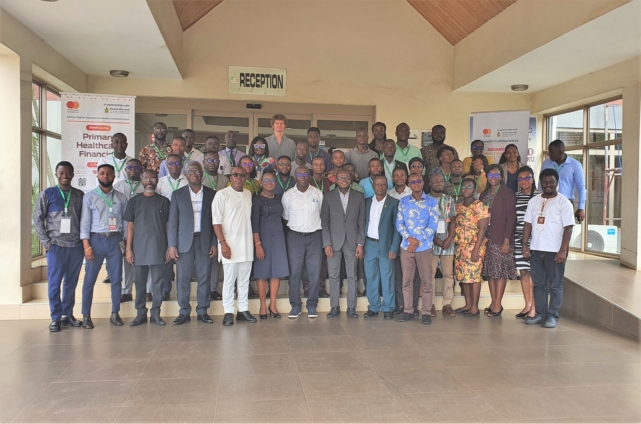The Pro Vice-Chancellor of the Kwame Nkrumah University of Science and Technology (KNUST), Prof. Ellis Owusu-Dabo is stressing the importance of Primary Health Care financing in the attainment of Universal Health Coverage.
He believes it helps in “improving effective service coverage and financial protection” in the health sector.
“Indeed, improved health systems financing is crucial for countries to make progress towards universal health coverage (UHC). Primary Health Care Financing is a core function of health systems that can enable progress towards universal health coverage.
“Thousands of people do not access services due to the cost. Many others receive poor quality services even when they pay out-of-pocket. Carefully designed and implemented health financing policies can help to address these issues. But, are we walking the talk? Are we still talking? Who is to act on these policies?” he said.
He was speaking at the opening of the primary health care financing workshop in Kumasi.
Primary Health Care is an essential aspect of all high-performing health systems and is an essential foundation of universal health coverage.
Prof. Owusu-Dabo however observes that the less privileged are unable to access optimum healthcare.
“Primary Health Care does not meet the needs of the people including both users and providers who should be at its centre.
“A vicious cycle has undermined PHC: under-funded services are unreliable, of poor quality, and not accountable to users. Therefore, many people bypass primary health-care facilities to seek out higher-level specialist care. This action deprives PHC of funding, and the lack of resources further exacerbates the problems that have driven patients elsewhere,” he bemoaned.
The Primary Health Care financing short course is therefore equipping 40 health personnel with skills to elevate the sector.
The workshop is spearheaded by the Health Employment pillar of the Mastercard Foundation Africa Higher Education Health Collaborative led by Dr. Kofi Akohene Mensah.
In the past five weeks, Mastercard Foundation Higher Education Health Collaborative has trained over 80 persons in Health Impact Assessment, Healthcare Industry and Regulatory Affairs.
The Africa Higher Education Health Collaborative in partnership with the Mastercard Foundation seeks to advance healthcare in Africa through three pillars: Health Employment, Health Entrepreneurship and Health Ecosystem.
The Health Entrepreneurship pillar aims to develop an entrepreneurial mindset and culture that supports entrepreneurs to create meaningful innovations and employment opportunities in the health sector.
The Health Ecosystem pillar also aims to train and prepare a new generation of talented professionals with the broad sets of skills required to drive equitable and inclusive growth.
Latest Stories
-
Sheffield United invited entire Shooting Stars team for trials because of me – Rashid Fuseini
59 seconds -
Do not apply for visa through agents; they are liars. – U.S. Consul General
6 minutes -
Quash order to restore Nii Adama Latse II – Nii Tackie Tsuru urges Supreme Court
9 minutes -
Ghana Maritime Authority executes second successful offshore medical evacuation in months
10 minutes -
Bond market: Turnover increased by 13.17% to GH¢1.33bn
14 minutes -
Israel says Iran violates ceasefire, orders strikes on Tehran
23 minutes -
Hearts of Oak reassign Ouattara as Special Advisor after hiring Didi Dramani Head Coach
24 minutes -
Fix the cracks first – Patrick Boamah advises NPP ahead of flagbearer race
27 minutes -
Ghana’s youth innovation model can power Africa – NYA boss tells Cape Town summit
27 minutes -
New Edubiase CEO reveals $24,000 payment owed to colts club in Salim Adams transfer saga
34 minutes -
John Jinapor tasks new VRA Board to lead Ghana’s energy transition
35 minutes -
MTN Group supports economic governance training for public officials
35 minutes -
A Shameful Absence: The fall of Hearts and Kotoko in African football’s new era
51 minutes -
VRA reaffirms commitment to sustainable community development across operational areas
51 minutes -
GIPC to sanction businesses failing to register Technology Transfer Agreements
52 minutes

